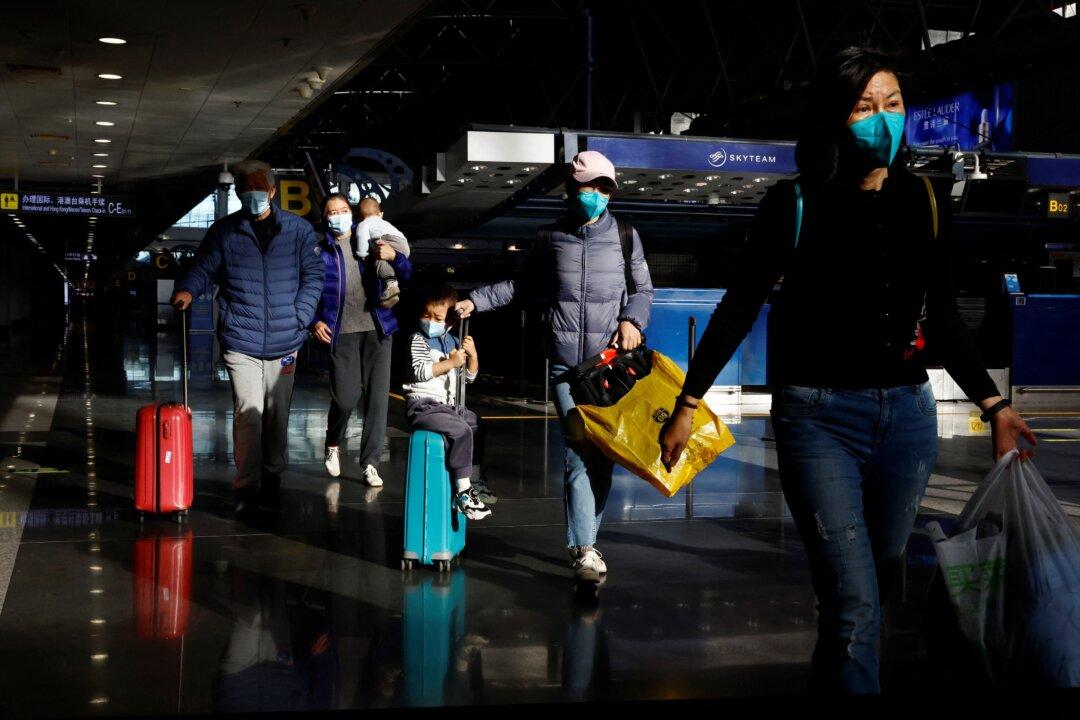The UK government has announced it will follow other countries by requiring travellers from China to provide a negative COVID-19 test from early next year.
From Jan. 5, people flying from mainland China to England will be asked to take a pre-departure test taken no more than two days prior to departure, the government announced on Dec. 30.





